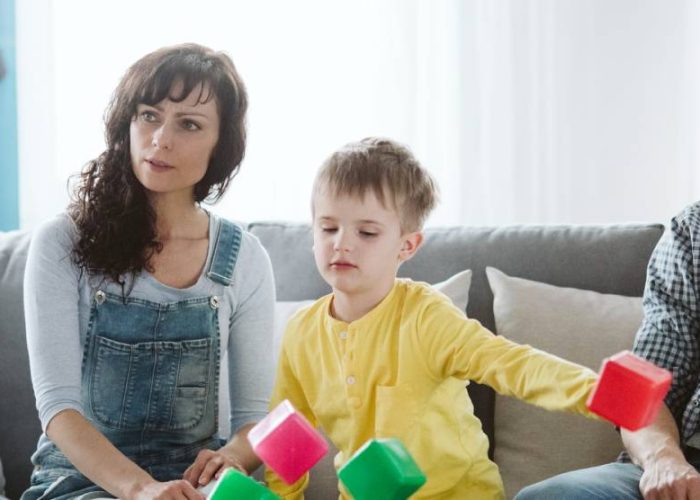Protocols
UNIQUE AND CUTTING-EDGE DEVELOPMENTAL PROTOCOLS FOR CHILDREN
The first 4 years of life is a sensitive and critical time for brain development – learning to walk, talk and become an individual. Never again will the human body and brain learn so much and change so fast.
Early childhood is the time for great learning and growth and unfortunately for some it is time for significant challenges, missed milestones and compounding delays.

Is my baby on track? Why is my baby not crawling/talking/walking etc., yet? How can I support my baby to reach the next developmental skill?
This service is designed for parents who need minor support and reassurance regarding the development of their baby/toddler.
The first 4 years of life is a sensitive and critical time for brain development – learning to walk, talk and become an individual. Never again will the human body and brain learn so much and change so fast.
Early childhood is the time for great learning and growth and unfortunately for some, it is time for significant challenges, missed milestones and compounding delays.
Although many websites offer developmental or milestone checklists, these checklists cannot ascertain why the neural learning became sticky and what can be done to help the little one reach the next milestones, rather than missing them or even experiencing compounding delays.
One-to-one support with a NeuroAbilitation specialist can support parents. Please also check out our skill development training videos coming soon.
Not all kids ‘Just catch up’!
Book a NeuroAbilitation assessment today!
As most building blocks of language are hidden until the very first words are spoken, many parents are not aware of their child’s language delay. In other words, while waiting for the language base of the child to become complex, dynamic, and continuous, or prior to the apperance of conversation loops, it is difficult to accurately assess the child’s language abilities for the untrained.
We do not have a specific organ for speech, in order to produce language many parts of the brain and body are required to work in unison.
Speech language delays can be due to multiple factors such as issues with hearing, bone conduction, auditory integration, speech apparatus, brain integration etc.
Not all kids ‘Just catch up’!
Book a NeuroAbilitation assessment today!
The ADHD, ADD, Autism support protocols can be beneficial for children who display ‘ADHD-like’ or ‘ADD-like tendencies with or without a diagnosis.
These protocols include cutting-edge technologies, therapeutic and neurodevelopmental support.
-Auditory support
-Language support
-Reflex and brain map integration support
-Neuro Motor learning support
-Biophoton therapy
Not all kids ‘Just catch up’!
Book a NeuroAbilitation assessment today!
The Australian Early Development Census (2015) has shown that 1 in 5 children are developmentally vulnerable.
Early childhood is the time for great learning and growth and unfortunately for some, it is time for significant challenges, missed milestones and compounding delays.
The first 4 years of life is a sensitive and critical time for brain development – learning to walk, talk and become an individual. Never again will the human body and brain learn so much and change so fast.
Brain and body learning is facilitated by accurate functional observation and developmental guidance, which results in new learning skills in the area of motor, language, and social development.
We all know children benefit from our expert support and guidance during these formative years. Helping children in their ‘just right’ or proximal range of development (ProD) helps them to engage, develop and not to miss milestones.
Delays in these formative years can be compounding.
Enhancing of motor, play and social, speech and communication skills are part of growing and learning. These skills are the foundation of living a fulfilled life.
NeuroAbilitation protocols involve:
-Neuro-motor movement teaching
-Postural support
-Muscle oxygenation/ fascia support
-Tone redefinition
-Auditory support
-Language support
-Reflex and brain map integration support
-Neuro Motor learning support
-Biopotome therapy
-Play therapy
Not all kids ‘Just catch up’!
Book a NeuroAbilitation assessment today!
UNIQUE MOBILITY AND BRAIN BODY YOUTHING PROTOCOLS FOR ADULTS

“You are as young as your spine is.”
Not surprisingly the most commonly reported pain is back pain.
Our back has the least number of neural receptors per area – in fact the fingertips contain about 100 times more receptors per square centimetre than the skin on the back.
Most people have back discomfort due to strained muscles, ligaments, and joints rather than a specific illness.
A stroke is a condition where there is insufficient blood supply to the brain, which results in cell death. There are two primary categories of stroke: ischemic (blood flow is reduced) and haemorrhagic (bleeding).
We offer the following programs for stroke management:
- NeuroAbilitation assessments
– Hypnotherapy
– Neuro-motor movement teaching
– Postural support
– Muscle oxygenation/fascia support
– Muscle tone redefinition
– Auditory support
– Language support
– Reflex and brain map integration support
– Neuro Motor learning support
– Biophotome therapy
– Tesla vibrational-medicine technology (Theraphi)
Book an appointment today!
“You are as young as your spine is.”
Not surprisingly the most commonly reported pain is back pain. Our back has the least number of neural receptors per area – in fact the fingertips contain about 100 times more receptors per square centimetre than the skin on the back.
Most people have back discomfort due to strained muscles, ligaments, and joints rather than a specific illness.
Inflammation, spasms, stiffness, tingling, and/or numbness are some of the symptoms of back pain.
– NeuroAbilitation assessments
– Hypnotherapy
– Postural support
– Muscle oxygenation/fascia support
– Muscle tone redefinition
– Brain map integration support
– Biophotome therapy
– Tesla vibrational-medicine technology (Theraphi)
Book an appointment today!
If you want …
* to reduce or stop the negative effects of tinnitus?
* to overcome balance problems associated with the inner ear functions?
* have improved energy and restore deep sleep?
* reduce stress and anxiety?
We can help to
* re-map brain pathways.
* stimulate the auditory pathways.
* resolve pressure imballances in the inner ear and vestubular processing in the barin.
* reduce anxiety by reducing limbic system and the left prefrontal cortex activity.
* activate the numerous language centres in the brain and builds more efficient connections between the right ear and the left brain.
* achive soo much more!
– NeuroAbilitation
-Auditory support
-Language support
-Reflex and brain map integration support
-Neuro Motor learning support
-Biophotone therapy
Book an appointment today!
EARLY CHILDHOOD TEACHER AND CHILDCARE CENTRE SUPPORT
Many amazing early childhood professionals just like yourself, are on the struggle bus when it comes to ascertaining what is the next step in order to reach the next milestones, finding proactive solutions, creative teaching tools.
But it doesn’t have to take over your nights and weekends. There is a way to make supporting children and planning for their needs ‘work for you’, and ‘help you’ plan for the kids in your care and let them thrive without it consuming your days (and nights!)

That’s why we offer an on-call support service to save time, money, and stress, so you can spend your valuable time actually treating the kids you serve.
Many amazing early childhood professionals like you are on the struggle bus when it comes to ascertaining what is the next step in order to reach the next milestones, finding proactive solution, creative teaching tools.
But it doesn’t have to take over your nights and weekends. There is a way to make supporting children and planning for their needs work for you and help you help kids thrive without it consuming your days (and nights!)
you help kids thrive without it consuming your days (and nights!)
On-call support will consist of
* Supporting staff to identify
individual strengths
and interests, abilities (delayed or
gifted) and the proximal range of development for all children in their care.
* Offering to share
developmental techniques in the areas of play, speech, gross- and fine-motor.
* Consulting with staff to
provide meaningful activities, and curriculum modification which can be integrated
into the daily routine. Together we will create and deliver programs which support all children to participate,
learn and develop.
We all know children benefit from our expert
support and guidance during these formative years. Helping children in their
proximal range of development (ProD) helps them to engage, develop and not to
miss milestones. Enhancing of motor skills, play and social skills, speech and
communication skills are part of growing and learning. These skills are the
foundation of living a fulfilled life.
